Cate Blanchett who has been a Goodwill Ambassador for UNHCR will be addressing the European Parliament in Brussels on 8 November according the recent press release. This year she returned to Zaatari Camp in Jordan, and visited other refugee camps in South Sudan and Niger. She has previously addressed the UN Security Council in August 2018 on the Rohingya refugee crisis after her visit at a refugee camp in Bangladesh.
Cate Blanchett covers the latest issue of Harper’s Bazaar Greece and is featured on the latest issue of Vogue Germany, both are available in newsstands of respective countries.
The Sparks is going to be on tour in Australia beginning 26 October and they have caught up with Cate and asked for tips while they are down under, conversation below.
Google translated from German and Greek to English
Cate Blanchett on routines, Berlin, support in the film industry and the importance of smells
As an actress, you have a rather erratic lifestyle. Do you enjoy traveling or are you happy to have peace and quiet?
Life is generally unsettled. We’re trying to control it and make it as stable as possible, but it’s uncertain, especially right now. But I generally feel very grounded, with my family and my garden and my passions. On weekends, my family sometimes forces me to the floor and makes sure I can’t get out of my pajamas. Because on a day off I always want to do something. The hardest thing for me is sitting still. There is so much to experience in life! In a way I’m lucky because I think people who work in the arts are used to this uncertainty and unpredictability of life and don’t expect things to go as planned. Because they never do.
So would you say that consistency isn’t that important to you?
No. I think I’m very loyal. I’m inspired by Charles Darwin. His house is not far from where we live in Kent. Every day he walked along a sandy path and developed the theory of evolution and incredibly profound thoughts. I always thought this walk was miles long – and then we visited his house, and in reality it’s just a little tiny walk of about 50, 60 meters. I really like the idea of ??going deeper and deeper into something. This is what I enjoy doing most with my work and with my friendships and relationships.
How do you create a home in strange places?
If I’m shooting for a long time, the first thing I have to do is make sure my family can come with me. That being said, I always try to unpack in some way. There are a few items I’m bringing with me. What immediately changes a room and what I’m very sensitive to is its smell. So I take a candle with me and make sure I have three or four different perfumes. I want the room to smell like home. If you’re staying in an apartment while filming, the first meal you cook there matters. You have to start building memories in this space.
Is there a particular dish that you cook then?
Something with garlic.
You mentioned that you’re a little restless. How do you find relaxation?
I wouldn’t say it’s restlessness, but rather a sense of adventure. I think this is something different. I find relaxation in the water. And when I’m with people I really feel comfortable with and we’re all laughing together – it can be about the silliest, silliest things. There’s a lot of laughter in our house, it’s really loud and irreverent.
How important are routines for you?
Very important. That’s actually the answer to the question of how I set up a home somewhere: establish routines. I always try to get up in the morning and move for 20 minutes and breathe consciously, even if I have a call at five o’clock. I love the early morning hours when everything is quiet and most people are still asleep.
What time do you usually get up?
It depends. I tend to stay up very late, even for no reason, when I’m at home. When I go to a party, it’s rarely late. I mean, I sometimes stay out until four in the morning, but that’s really rare. But at home I stay up late because I love the quiet and just walking around. It is the time when no one demands anything from you. This is like a dream space. I like long nights, but I’m one of those people who doesn’t need much sleep, so I still get up early in the morning . When I’m filming, I get up at five o’clock, otherwise I get up at six or 6:30 at the latest.
Then what’s next in your routine?
After getting up, skin care and facial massages are very important to me. Even when I go makeup-free—always wearing mascara or dark glasses—I always put on perfume when I leave the house. And I don’t do that for other people. It’s about how I start the day. Apart from that, meals are one of our most important routines, also because otherwise the children get hungry. We always eat together. When I’m working, everything goes pretty much according to plan so that all needs can be taken into account and I don’t lose touch with my life. The routine is quite strict and the time is quite controlled. When I’m not working, I prefer to keep it more casual; I love this feeling of open-ended time. When you start the day and think to yourself: “What am I going to do today? Let’s see what happens to me”. This doesn’t happen very often, but I love this feeling.
When you spend (long) time in Berlin, such as when filming “Tár” – what are your favorite activities and places in the city?
I love cycling and meeting friends. It’s very obvious, but Berlin is such a diverse cultural city. Some of my friends here run theaters and opera companies, and I love watching their work.
When I think of Berlin, I think of wearing a coat and going to the theater. It’s always cold and windy, but I love that. Because I’m Australian, I’ve kind of hidden from the sun since I was little. There are so many Australians here, it’s almost scary. (laughs)
Earlier this year at the Critics Choice Awards , you questioned the system behind the industry’s awards shows by describing them as a televised horse race. Do you think we don’t really need awards like this?
Not that one. I think it’s absolutely wonderful that we’re celebrating achievements in the industry. Nobody tries to intentionally make a bad movie, and it’s really hard to make a good one. So it’s great to recognize together the work that goes into it. When people actually achieve something, engage an audience, or make a difference, that’s fantastic. But I think it sometimes happens that people whose work is extremely different and who have such different ambitions become competitors through competitions. I believe that the works complement each other. I’m not very articulate so I probably didn’t express it very well, but that’s exactly what I meant. How can we honor this differently? How can we celebrate it differently?
There are so many films and performances and works by cinematographers, writers and actors that I admire this year and every year. I never think that one is better than the other. I just think they complement each other. Within the industry we are inspired by each other’s work. Especially among women, we are very proud of the work that everyone has done.
How can we manage to provide even better support for women – among themselves and also from non-women?
In the end, it’s about listening and not assuming that your own experience is the same as someone else’s. Women are capable of so many emotions and feelings and different types of intelligence and are incredibly active. But one of our superpowers is empathy. And I think it’s about empathizing with other people’s experiences.
How would you apply this to the film world, what would be the most important steps in the industry to give more support to women?
Ultimately it’s about access. There is a lot of mentoring now; the difference in the film industry from then to now is huge. But we still have a long way to go. I think there needs to be more women and more people from different cultures behind the lens, not just in front of the lens. The media puts much greater pressure on women’s performance than on men’s. This is something we need to protect each other from. In my opinion, things are much more collegial and collaborative within the industry. Our company, Dirty Films, is part of a mentoring project for aspiring female screenwriters . There are all these little, almost invisible things to do, like asking: I know it’s hard to publish a first script, but what about the second one, how can we help you develop that? There may be a lot of access to platforms that will eventually show the work , but there isn’t a lot of support in development. And I think that’s what’s needed so that people and their work aren’t exposed too quickly. That they are supported in making the transition from a short film to a first feature film or the even bigger step from the first to the second feature film. There’s still a feeling of “I only have this one chance.” In life, but certainly in art, failure is the first step to opening a new door. And we need to be there for each other when we fail because that is the space to learn. We need to celebrate each other’s successes, but also be there for the missteps. I think this is really important.
Looking back at the changes in the industry and your career, do you think time passes faster than it used to?
As a child, I remember summer feeling like an endless decade. Every summer. Today everything seems to go by much, much faster. I think it’s because we’re all overstimulated. It’s really important to slow things down to figure out how to think and what to think about. Time slows down when you try to do only one thing at a time. I keep telling myself that I only want to master one thing today, not try 20 things and fail at 19 of them. Then you breathe, you breathe better, you think better, you are kinder and all these things.
Are there certain things that make you wish you could go back in time?
No. I mean, my eldest son just turned 21 and some days when he’s away – he’s working on a film in Australia – I miss him terribly and I think to myself: I remember when he was eight years old! But I can’t go back there. When we know we have endless time, we don’t appreciate it. Memories are incredibly powerful. This is why scents, images and touch are so important because they remind us of things. Time has passed, and one can relive those times in memory rather than trying to recreate them. I think I would destroy it if I went back and tried to restore it.
You just mentioned smells as something that transports memories. What smell takes you back to your childhood?
We recently shot a film in Australia and hadn’t been there since before the pandemic. Meanwhile we were visiting friends in Tasmania and it was summer but it had just rained. We got out of the car and smelled the earth and eucalyptus. We could see Bruny Island and there was this sea breeze… and I just cried. I just thought: This is where I come from. There were just all these natural smells. I love England and life in England and we have built a life there. And you can come to terms with living abroad and get along with it. You can Zoom with your friends and text each other and eventually, hopefully, see each other again every now and then. But that’s where I come from. And the smell just blew me away.
What is the smell of summer to you?
Salt. That’s probably the Australian summer when you come out of the surf, that salty, slightly sweaty smell. But it is clean and fresh air, of course.
If you could transport yourself to a place using smells – what place and what smell would it be?
I love sharing meals with friends, so it would probably be something fragrant to eat. My mother and I bake a lot. So it could be something like apples and blackcurrants.
Last question: Is there anything you would like to learn?
I have to keep up my piano playing. I would also love to fly a glider. No loud airplane or helicopter, although I love helicopters. There is something special about it. But I mean a glider. And just being up there without any noise. I would love to do that.
Cate Blanchett talks to Harper’s Bazaar Greece about her special relationship with Giorgio Armani
HB: How does the new fragrance “Sì Eau de Parfum Intense” make you feel?
CB: It’s full of so many memories. It encompasses 10 wonderful years and all the amazing versions of “Sì” that I have known, but the new “Sì Eau de Parfum Intense” stands out for its warm and sensual character. You feel that it embraces you with its rich full juice, which includes two types of vanilla. And especially with this new campaign it shows how much it embraces the different aspects of every woman’s character. It is full of joy, a fragrance created to offer confidence and strength.HB: How would you describe the woman who wears “Sì”?
CB: She is sure of herself, but often the way she shows it is quiet, while other times more youthful. She has a positive self-image and strong self-confidence, without feeling like she has to apologize for it. I think the way the fragrance evolves also brings different elements to the surface during the day. Sometimes it is sweeter, sometimes more rich and sensual. This ever-changing process of perfume development on the skin is inextricably linked to the changes in the character of each woman, which is so unique. No woman is represented by a single characteristic, but by many different aspects of her character, as is the case with the fragrance “Sì”.

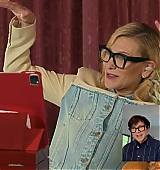
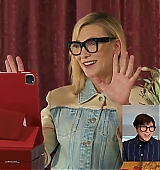
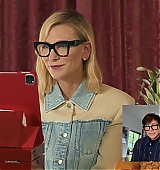
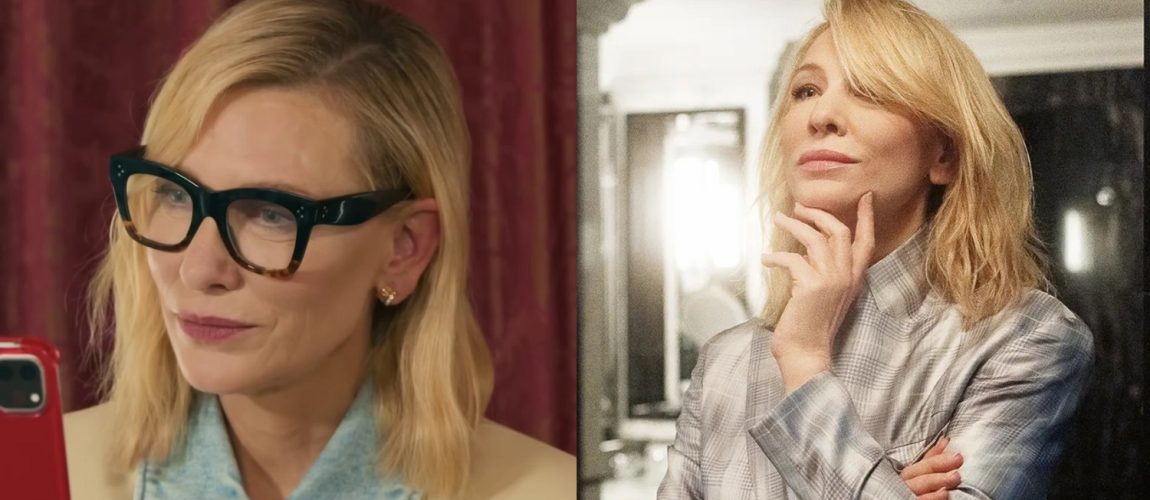
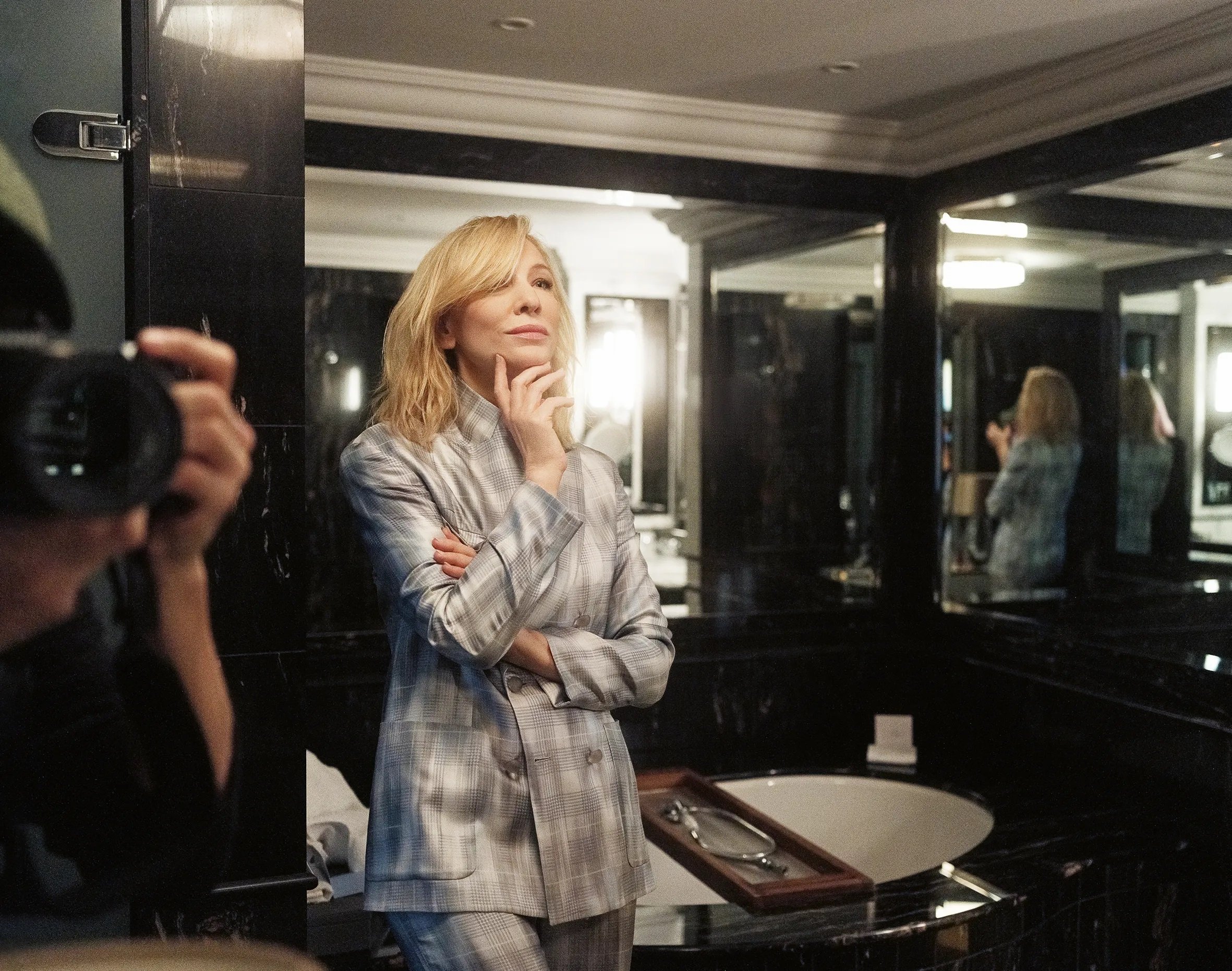


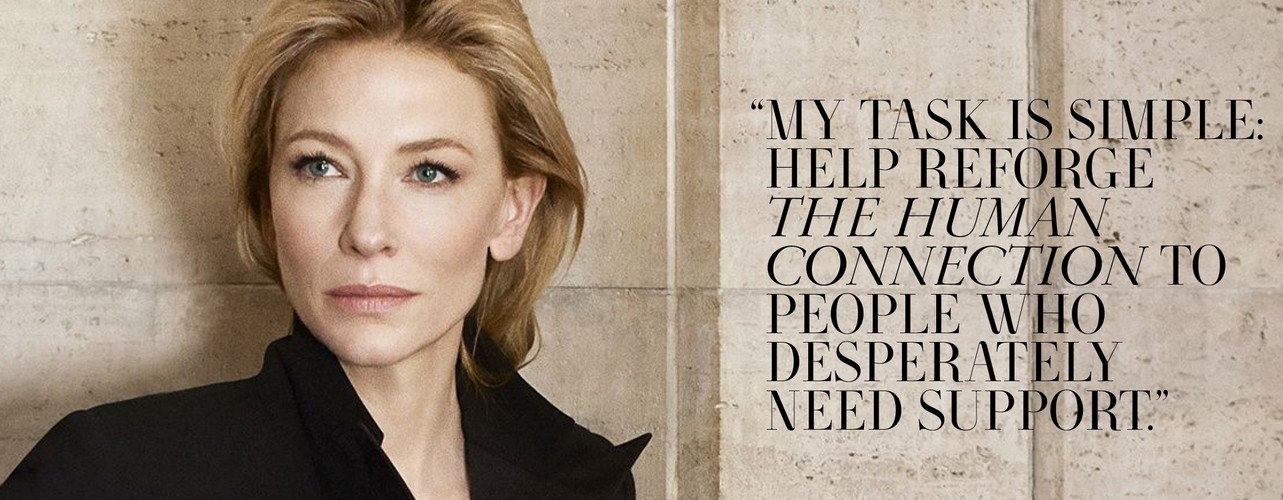

 A Manual for Cleaning Women (202?)
A Manual for Cleaning Women (202?) Father Mother Brother Sister (2025)
Father Mother Brother Sister (2025)  Black Bag (2025)
Black Bag (2025)  The Seagull (2025)
The Seagull (2025) Bozo Over Roses (2025)
Bozo Over Roses (2025) Disclaimer (2024)
Disclaimer (2024)  Rumours (2024)
Rumours (2024)  Borderlands (2024)
Borderlands (2024)  The New Boy (2023)
The New Boy (2023) 











